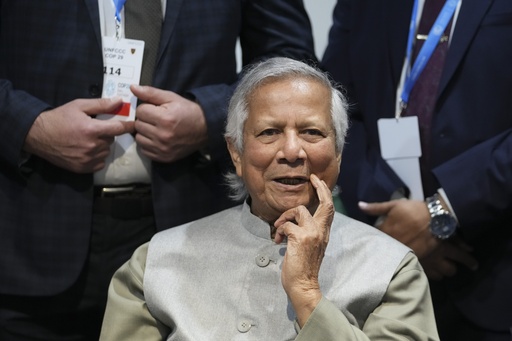
DHAKA, Bangladesh — On Sunday, Bangladesh’s interim leader and Nobel Peace Prize winner, Muhammad Yunus, announced plans to seek the extradition of former Prime Minister Sheikh Hasina, who has been in exile in India since leaving the country amid a mass uprising in August.
During his televised address, which marked his first 100 days in office, Yunus emphasized that his administration would hold accountable those responsible for numerous fatalities during the student-led protests that concluded Hasina’s 15-year tenure. He took over leadership on August 8, just three days after Hasina fled to India.
Yunus stated that the government would investigate not only the deaths resulting from the uprising but also other human rights violations, including reported enforced disappearances under Hasina’s regime. To facilitate this, Bangladesh is working with Interpol to issue a red notice for Hasina and her associates.
“We will seek the return of the fallen autocrat Sheikh Hasina from India,” Yunus declared, noting that he has already spoken with Karim Khan, the chief prosecutor of the International Criminal Court (ICC) regarding the matter.
While Hasina and her close allies face a range of criminal charges domestically, the Yunus administration is also advocating for the ICC to address the case.
Yunus highlighted that the primary focus of his government is to organize new elections to restore power to an elected body, although he did not provide a specific timeline for these elections. He indicated that electoral reforms in several sectors would need to be implemented before a roadmap for the elections could be shared.
In addressing concerns about rising violence against minorities, particularly Hindus, Yunus downplayed reports of such attacks, calling them “exaggerated.” Many minority groups have expressed fears regarding the growing influence of hardline Islamist factions following Hasina’s removal from power.
